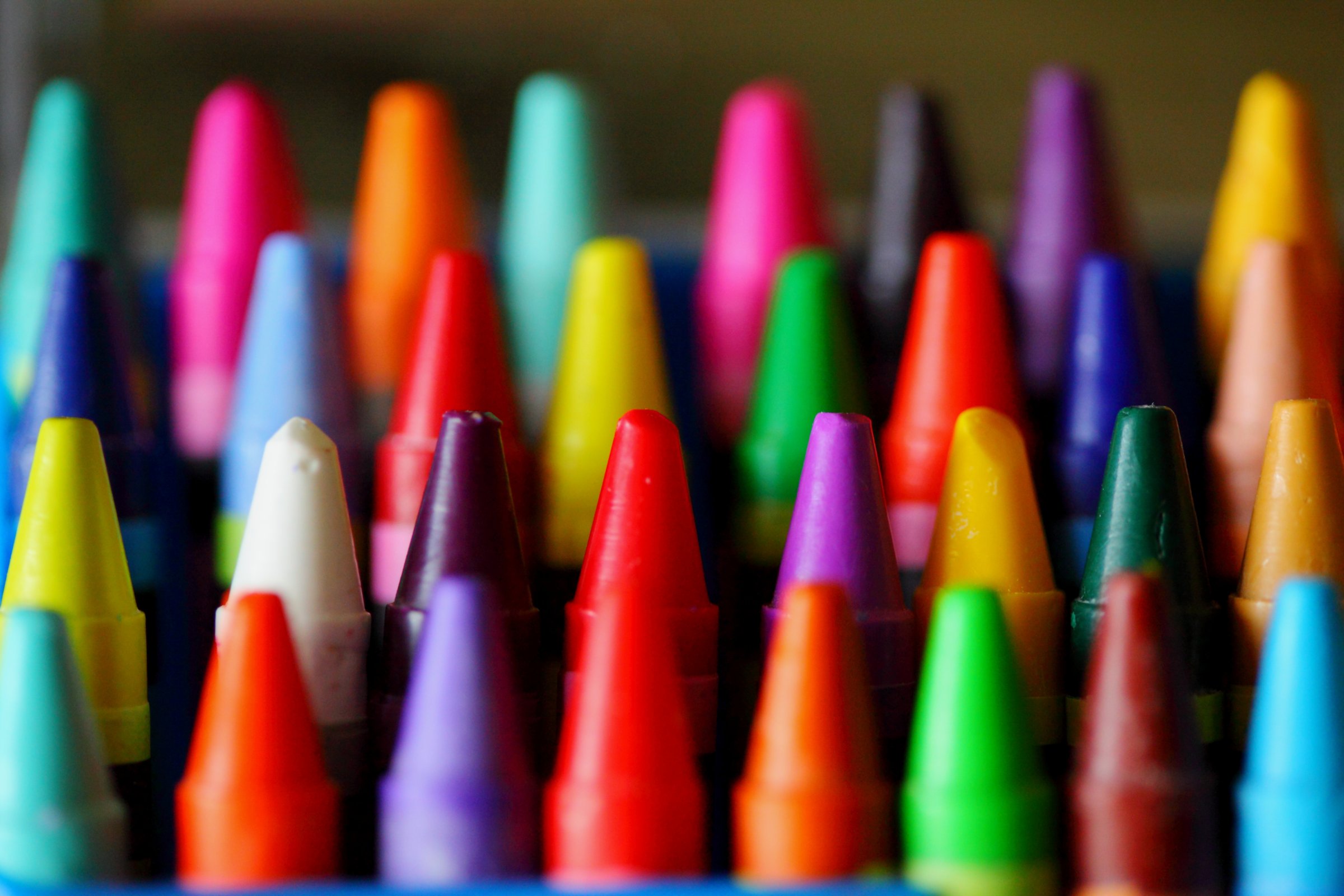
Several brands of crayons and some children’s toy crime scene fingerprint kits were found to contain asbestos, a known carcinogen, in a recent investigation commissioned by the Environmental Working Group (EWG) Action Fund.
An independent laboratory—the Scientific Analytical Institute of Greensboro, N.C.—tested 28 boxes of crayons and found asbestos in four of them, according to the new EWG report. The lab also tested 21 toy crime scene fingerprint kits and found asbestos in two of them. The researchers found that powder in the toy fingerprint kits had a relatively high concentration of asbestos at 1%.
“This is an exposure that could easily be avoided,” says Sonya Lunder, EWG senior researcher and one of the study’s authors. “The threshold for exposing a kid to a carcinogenic chemical when they’re playing with toys should be zero.”
Though the report addresses specific products, Lunder says the investigation should remind consumers that asbestos can be present in any product when you least expect it. “The lesson here is that parents can’t just read labels and choose safer products by looking at the labels themselves,” says Lunder. “There’s not enough information about where asbestos might be found.”
Read More: Why ‘BPA-Free’ May Be Meaningless
Asbestos—which is responsible for more than 100,000 deaths worldwide each year, the World Health Organization (WHO) estimates—is a naturally occurring mineral fiber that has been used in a wide range of manufactured goods, coatings and building materials because of its resistance to things like heat. Inhaling asbestos fibers can cause them to get stuck in the lungs for a long time, according to the National Cancer Institute. The fibers can cause internal scarring and inflammation over time, which can harm breathing. Eventually, asbestos exposure may raise the risk for lung cancer and cancer of the thin membranes lining the chest, the National Cancer Institute says.
The U.S. Consumer Product Safety Commission (CPSC), which regulates asbestos in many consumer products, has no ban on the material in crayons. And, while most manufacturers have agreed to a voluntary ban on the product, all of the contaminated products were manufactured in China, making it difficult to trace every step in the supply chain.
The CPSC says it’s investigating the EWG’s findings, but that there’s a high bar to clear—and lots of questions to answer—before it can take action. U.S. law requires the commission to determine not only whether a product contains asbestos but also the likelihood that the carcinogenic substance can actually cause harm to human health, according to CPSC spokesperson Scott Wilson. “How much of that substance can come out of the product? What’s the root of exposure? How many hours do they use the product?” he asks.
On July 8, U.S. Senators Edward Markey of Democrat and Dick Durbin of Illinois called on retailers to voluntarily recall “toxic products” and said they would work with the CPSC to determine next steps to address product safety.
“Children’s playtime should be filled with fun, not asbestos,” Markey and Durbin said in a statement. “We need greater access to information about where asbestos is present in products children and families use every day.”
Harm from asbestos exposure typically results from direct and repeated exposure over time, according to the National Cancer Institute. However, the United States Department of Labor says that there is no “safe” level of exposure for asbestos fibers.
TIME reached out to several of the five distributors of products EWG found to contain asbestos, and Toys “R” Us—which makes one of the forensics lab kits—was the only one to reply to a request for comment. The company is “reviewing the referenced report, along with supplier test reports, to ensure full compliance to our strict safety standards,” the company said in a statement.
More Must-Reads from TIME
- Cybersecurity Experts Are Sounding the Alarm on DOGE
- Meet the 2025 Women of the Year
- The Harsh Truth About Disability Inclusion
- Why Do More Young Adults Have Cancer?
- Colman Domingo Leads With Radical Love
- How to Get Better at Doing Things Alone
- Michelle Zauner Stares Down the Darkness
Write to Justin Worland at justin.worland@time.com